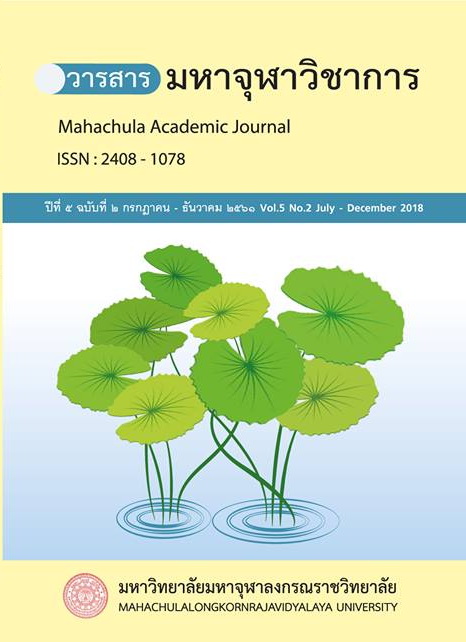Disrobing of a Bhikkhu: A Balance of Buddhist Sangha Community.
Main Article Content
Abstract
Buddhist ordination is the sincere declaration of accepting oneself as a Buddhist Bhikkhu living with disciplines as a monkhood in Buddhism. To live as a Buddhist Bhikkhu is an important factor of 4 Buddhist communities including; Bhikkhu, Bhikkhuni, laymen and laywomen. These communities are all together known as one Sangha followers of Buddha or Buddhaparisada. Their duties are to preserve and to hand on Buddhism from one generation to next generation. If some ordained Bhikkhu unable to complete his disciplinary rules and continue monkhood or longing to live as Buddhist layman, he is allowed to disrobe or ‘Sikkhā leaving’ by declaring himself as a Buddhist layman (Upāsaka) and then observing either 5 precepts or 8 precepts (Uposathasīla) as he can according to the disciplinary rules found in and out of fundamental rules of the Order (Pāṭimokkha).
This academic article proposed that the Buddhist tradition of ordination and disrobing is the way to maintain the balancing of Sangha community in Buddhism and giving an opportunity for Buddhist laities to study and to practice Dhamma depending on their abilities. There found many Bhikkhus after disrobing have rightly known what ought to do and not to Bhikkhus according to their customs and rules. They always struggle and give hands to Sangha and Buddhist activities and yet having preserved and maintained the Buddhist affairs through ordination and disrobing tradition for a long time. In addition, the article intentionally aims at crystalizing and giving clear comprehending about the disrobing procedure according to Buddhist disciplinary rules. It gives more right understanding on individual right and freedom for spiritual seeks in any religion written in Articles of constitutional law as well.


